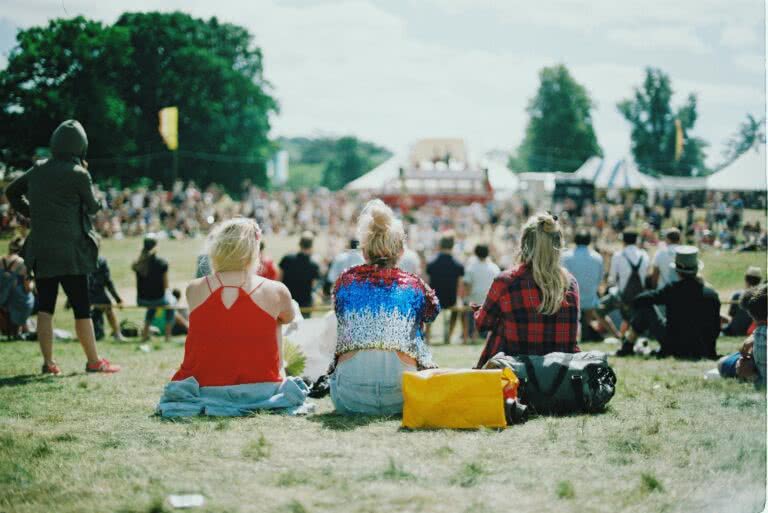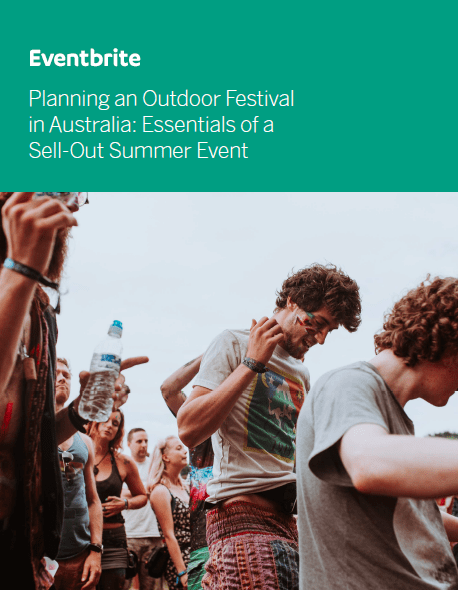You don’t need us to tell you that plastic is a problem. Like most festivals, your event is likely littered with the stuff from top to bottom every year. But it doesn’t need to be that way. Berish Bilander, Co-CEO and Campaigner for Green Music Australia, says your event-goers want to be part of the solution to reduce the environmental impact of Australian festivals.
“There’s no music on a dead planet, so the quicker we do away with disposable or poorly built plastic products, the better,” says Bilander.
“Thankfully, audiences are hungry for change, and more and more of the industry is taking action, using its unique and powerful voice to accelerate the transition towards sustainable practices,” he says.
How to remove and reduce plastic from festivals
Bilander says the best place to start in reducing a festival’s environmental footprint is to avoid waste from the start.
“What’s most exciting is that festival organisers are increasingly looking to implement ‘upstream’ solutions, avoiding waste in the first place rather than relying on our broken recycling system to fix the problem. Refuse, reduce, and reuse, must be the starting point for any intervention,” he explains.
Below are six pointers that will have you on your way to becoming a plastic-free festival.
1. Remove plastic water bottles and drinking cups
The summer heat at Australian festivals creates a conundrum: how do we remove or reduce plastic water bottles and cups while ensuring that festival-goers remain well hydrated?
Having a plastic-free festival in summer is hard, but not impossible. Green Music Australia has developed a campaign called ‘BYO Bottle’ and is partnering with music festivals and artists to help remove single-use plastic waste from festival events. This campaign is having a huge impact on waste at participating festivals, by rallying attendees to do their part and be prepared.
Eco-friendly tips for reducing plastic bottles and cups:
- Develop a communications plan, advising attendees and vendors that you are aiming for a plastic-free festival and asking them to BYO drinking bottles
- Ban sales of plastic water bottles onsite across all concessions, but promote and sell reusable water bottles
- Set up a dishwashing station on-site, or offer cup/bottle hire, refunding a deposit when the item is returned. This could be arranged directly with vendors, or in partnership with initiatives like Green My Plate or Returnr
- Provide plenty of drinking fountains that don’t require a cup to use as well as areas to refill water bottles
- If your bar areas require single-use cups, choose paper cups or implement a recycling program to reduce waste
2. Ban drinking straws
Does your festival really need straws? Chances are, attendees can live without them. If not, paper straws are readily available now. Make sure you communicate to vendors that plastic straws are not welcome at your event.
3. Remove single-use condiment sachets
Provide food vendors with enough counter or table space to provide bottles of sauce, rather than have them hand out single-use plastic sachets. If they’re serving coffee and tea, ask that vendors include sugar in the order rather than leaving out sachets and plastic stirrers.
4. Introduce dishwashing stations or eco-plastic serveware
Biodegradable and compostable plastics are becoming more commonplace with a shift in consumer attitudes towards waste. But it’s important to note that it should be disposed of correctly in order to gain any benefit and avoid becoming landfill.
If you ask food vendors to only use compostable serveware (i.e. plates, knives, forks, bowls, boxes, hot drink cup lids etc), provide the correct bins for attendees to dispose of these items so they can be composted correctly. Some especially waste-conscious festivals use volunteers to help guide patrons how to dispose of their recyclable and compostable items correctly.
The better solution is to offer dishwashing services where possible, so that plates and crockery can be cleaned and reused without creating any landfill. It might sound like a daunting task for a large festival, but 3-day music festival, Strawberry Fields, is doing just that. Strawberry Fields has implemented the “Rewash Revolution”, where attendees a charged a $4 deposit for their crockery, which they get back when it’s returned for washing. Attendees that BYO crockery don’t pay a deposit at all and can access free dishwashing.
5. Reuse lanyards and event specific items where possible
There’s a lot of extra plastic that can wind up as single-use when creating event specific materials. Consider what can be used again if you removed the date. Things like event signage and even lanyards could be reused if they aren’t created specific to a single event day. Provide collection bins at exit points for lanyards and badge plastics to reuse again where possible.
If you or your event sponsors are considering handing out swag items or gifts to speakers, artists etc – this is another area that can come under scrutiny. If you’ve invested time, money, and energy into promoting your festival as plastic-free, but sponsors spend all day handing out cheap throwaway merchandise items, it could undermine your event brand. Ask event partners to steer clear from any items that will wind up as landfill at the end of an event.
6. Appeal to attendees to play their part
Attendee attitudes will play a big role in cleaning up your festival. Events like Strawberry Fields communicate their ethos to their event-goers around sustainability and respecting the regional location where their event takes place. This includes advising event-goers to bring quality camping gear (rather than dumping cheap tents after a single festival) and warning about the microplastics in glitter. You can check out an example of this advice here.
Essentials of a Sell-Out Summer Festival
To run a festival this summer, you need to be more than “well-prepared” — you need to be truly battle-ready. Download our guide to learn how to draw big crowds, create a summer-proof on-site strategy, and keep attendees safe once they’re through the gates.
For more resources on making your festival plastic-free, check out the resources available at Green Music Australia.





